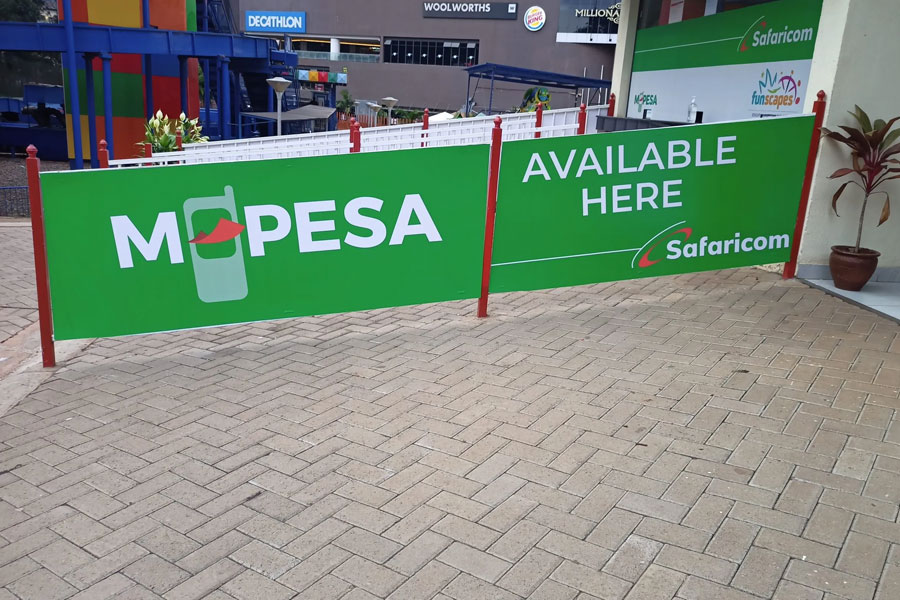
Oct 30 , 2022
Agent networks have borne the brunt of price wars among mobile financial service providers. While welcomed by users, the fee reduction only reduces agents' commissions, writes Mondato, a boutique management consulting firm specializing in strategic, commercial and operational support for the Digital Finance & Commerce (DFC) industry.
Agent networks have borne the brunt of price wars among mobile financial service providers.
In Kenya, 55pc of mobile money agents derive a majority of their income from non-mobile money activities, compared to 32pc of agents that receive a majority of their income from mobile money, according to a GSMA report.
In West Africa, Senegal's mobile money ecosystem underwent a shift with the introduction and aggressive marketing wave. This mobile money start-up rattled the market with its one percent fee on transactions. Senegal's dominant market player, Orange Money, saw a decrease in users and was pushed to lower its rates from five percent and 10pc to 0.8pc of the transactions to remain relevant.
While welcomed by users, the fee reduction only reduces agents' commissions.
In more mature mobile money markets with dominant players, such as M-Pesa in Kenya, the agent commissions act as a driving force for the enterprise's agenda. The best example is how M-Pesa commission rates for cash deposits are much higher than cash withdrawals. This encourages agents to seek out and support end users to keep more money in their mobile wallets and conduct more transactions.
CICO transactions form the ecosystem's primary income source for mobile money agents.
However, these CICO transactions have been reducing over the years as agents find mobile wallet use cases multiplying and the mobile money ecosystem more self-contained. In Kenya, people using public transport (buses) can pay for their rides through P2P, utilizing the zero-fee transaction cost for smaller transactions under one dollar. Grocery stores increasingly accept payments through the 'Buy Goods' M-Pesa product.
All these small changes reduce the need to visit an agent as frequently as one would a couple of years ago.
Such a reduction in foot traffic affects mobile money agents, causing them to pursue other revenue sources to complement their income. None of the 12 agents in Kenya rely solely on their mobile money agency as their primary business. These businesses bring foot traffic to their stalls by increasing the number of customers they serve.
This trend is expected to worsen if agents' reliance on CICO continues. While CICO is a critical step to expanding digital financial services to the unbanked population, the market is at a point where it needs to move beyond CICO and towards a more diversified approach to agent networks' role.
However, the market remains stubbornly at a standstill as key mobile money players work to maintain their ecosystems by often gatekeeping against interoperability, which increases friction along the value chain.
Take a housekeeper who is paid via mobile money and must pay her house rent via a local bank. Ideally, she should be able to go to the nearest mobile agent and complete the transaction from mobile money to a bank account, but this would not be possible in Kenya. Instead, she would need to look for an agent that offers the particular bank's agency banking services. She would then withdraw the cash from the agent, who would record the withdrawal after confirming it from a mobile phone and proceed to make a payment at the POS machine for the bank in question.
Assuming the agent has that particular bank's POS, this is time-consuming for both parties and makes it hard for agents to transact, as it requires them to have different floats and balance them all out.
Other key markets in Sub-Saharan Africa have raced ahead of Kenya in facilitating interoperability, like Uganda.
The Uganda Bankers Association began the path to interoperability, enabling transactions across participating banks on a single system at the agent level. That step alone saw agents' income increase, and they can now operate between different banks without requiring different floats. Agents were able to operate efficiently within an integrated POS system.
Left to their own devices, mobile money service providers continue to discourage interoperability.
A look at Kenya's mobile money space illuminates the obstacles in sending money between two providers. The first hurdle is in the transaction cost. For out-of-network transactions, M-Pesa charges more than double the cost of an M-Pesa-to-M-Pesa transaction. When it comes to withdrawing that money, the recipient would not be able to remove it from their respective agent; they would need to visit an M-Pesa agent, share a code that ascertains they received money, and have the agent conduct the transaction on their behalf.
The recipient must do so within seven days of receiving the money, after which the code expires, and the money reverts to the sender.
Such high-friction processes discourage people from using inter-provider transfer services. Agents interviewed in Kenya share that the most likely people to use these services are those trying to bypass unpaid loans to a service provider.
Despite this ongoing intransigence from industry leaders, a shift in business models for agents is not only necessary but imminent.
Facing these gatekeeping pressures, mobile money agent networks are shifting towards them, acting as enablers to more sophisticated financial products and services. One of the agents interviewed notes her busiest time is at the beginning of the month when rent is due for people living in the high-rise apartments around her. She deals with building managers, who refer new tenants to her to facilitate rent payments to local banks.
Yet it is not simply new payment corridors that agents are migrating towards, but for them to offer new products altogether. In the B2B and B2C eCommerce spaces, players like Marketforce, a digital commerce marketplace that connects informal merchants with suppliers, could use agent networks as distribution channels. The Marketforce allows traders to resell digital financial services such as airtime and bill payments, and agents also get paid a commission.
Copia, a retail eCommerce platform, enables purchases of products by middle and low-income people with or without Internet access through its agent network. Through Copia, agents can sign up to help people in their area purchase and access goods, earning a commission. With over 30,000 agents across Kenya and Uganda, and more signing up, its appeal to the agent networks is clear, as locals continue to see an increase in Copia colours - yellow and red - across the streets of Kenya and Uganda, including rural areas.
As new use cases emerge, the market will likely see more revenue-generating opportunities among agents.
With more revenue streams for agent networks comes the operational challenges of managing multiple income streams from separate entities, each with its own terms of service. Aggregator platforms like Waynbo by Papersoft are emerging to fill the market gap. Waynbo is a platform that enables agents to access multiple financial services to sell to users, ranging from insurance to utility payment, retail and banking. It allows partner companies to recruit, onboard and manage agent networks. Such solutions could be essential to better-integrated systems for agent networks while reducing costs.
Papersoft's Waynbo has yet to enter the Kenyan market as it struggles to break through the market's rampant gatekeeping. Yet, the growth of diverse agent network use cases in Kenya and regulatory efforts may force mobile money operators to facilitate greater service interoperability.
With these changes, the role of the mobile money agent goes beyond representing a few mobile money service providers. As innovative solutions providers like Copia and Marketforce slowly turn agent networks into their distribution networks, the ability of mobile money agents to educate the masses and provide a last-mile connection for companies will increase their relevance over time as they take on more revenue-generating income streams beyond payments and transaction facilitation.
The push towards interoperability and zero-cost transactions will force mobile money service providers to surpass CICO revenue generation models. Consequently, we may see more innovation on their end or witness a reduction in the green storefronts blanketing Nairobi and other cities in Kenya as agent networks strive to survive by diversifying beyond mobile money.
This article is extracted and republished here upon permission from Mondato, a management consulting firm specializing in strategic, commercial and operational support for the Digital Finance & Commerce (DFC) industry.
PUBLISHED ON
Oct 30,2022 [ VOL
23 , NO
1174]

My Opinion | Mar 12,2022

Life Matters | Nov 23,2024

Radar | Nov 24,2024

Commentaries | Sep 21, 2024

Radar | Nov 16,2019

Featured | Jan 07,2024

Advertorials | Jan 22,2024

Radar | Aug 08,2020

Fortune News | Jul 29,2023

Fortune News | Feb 20,2021

My Opinion | 131673 Views | Aug 14,2021

My Opinion | 128039 Views | Aug 21,2021

My Opinion | 126001 Views | Sep 10,2021

My Opinion | 123622 Views | Aug 07,2021

Dec 22 , 2024 . By TIZITA SHEWAFERAW
Charged with transforming colossal state-owned enterprises into modern and competitiv...

Aug 18 , 2024 . By AKSAH ITALO
Although predictable Yonas Zerihun's job in the ride-hailing service is not immune to...

Jul 28 , 2024 . By TIZITA SHEWAFERAW
Unhabitual, perhaps too many, Samuel Gebreyohannes, 38, used to occasionally enjoy a couple of beers at breakfast. However, he recently swit...

Jul 13 , 2024 . By AKSAH ITALO
Investors who rely on tractors, trucks, and field vehicles for commuting, transporting commodities, and f...

Jun 28 , 2025
Meseret Damtie, the assertive auditor general, has never been shy about naming names...

Jun 21 , 2025
A well-worn adage says, “Budget is not destiny, but it is direction.” Examining t...

Jun 14 , 2025
Yet again, the Horn of Africa is bracing for trouble. A region already frayed by wars...

Jun 7 , 2025
Few promises shine brighter in Addis Abeba than the pledge of a roof for every family...

Jun 29 , 2025
Addis Abeba's first rains have coincided with a sweeping rise in private school tuition, prompting the city's education...

Jun 29 , 2025 . By BEZAWIT HULUAGER
Central Bank Governor Mamo Mihretu claimed a bold reconfiguration of monetary policy...

Jun 29 , 2025 . By BEZAWIT HULUAGER
The federal government is betting on a sweeping overhaul of the driver licensing regi...

Jun 29 , 2025 . By NAHOM AYELE
Gadaa Bank has listed 1.2 million shares on the Ethiopian Securities Exchange (ESX),...